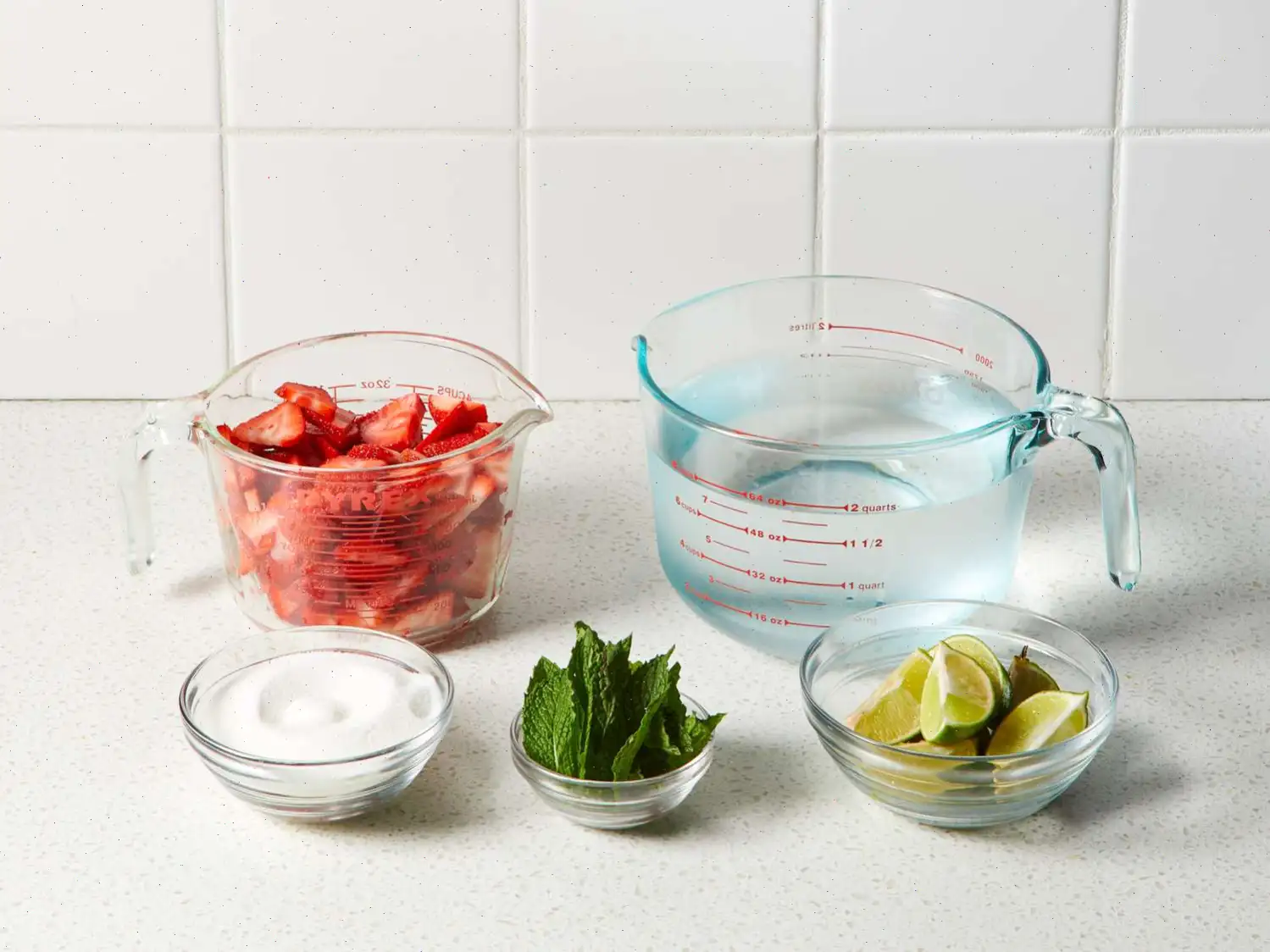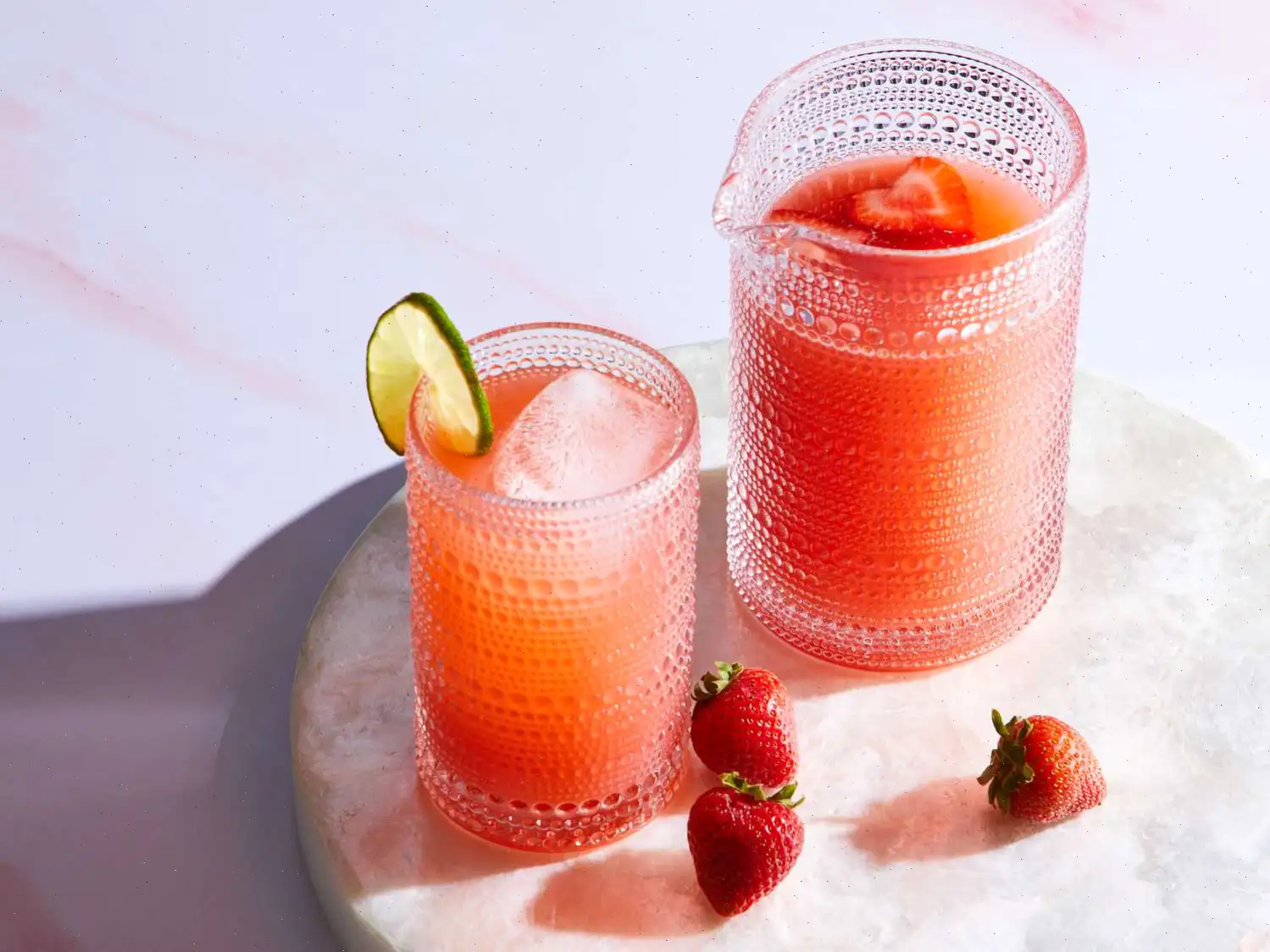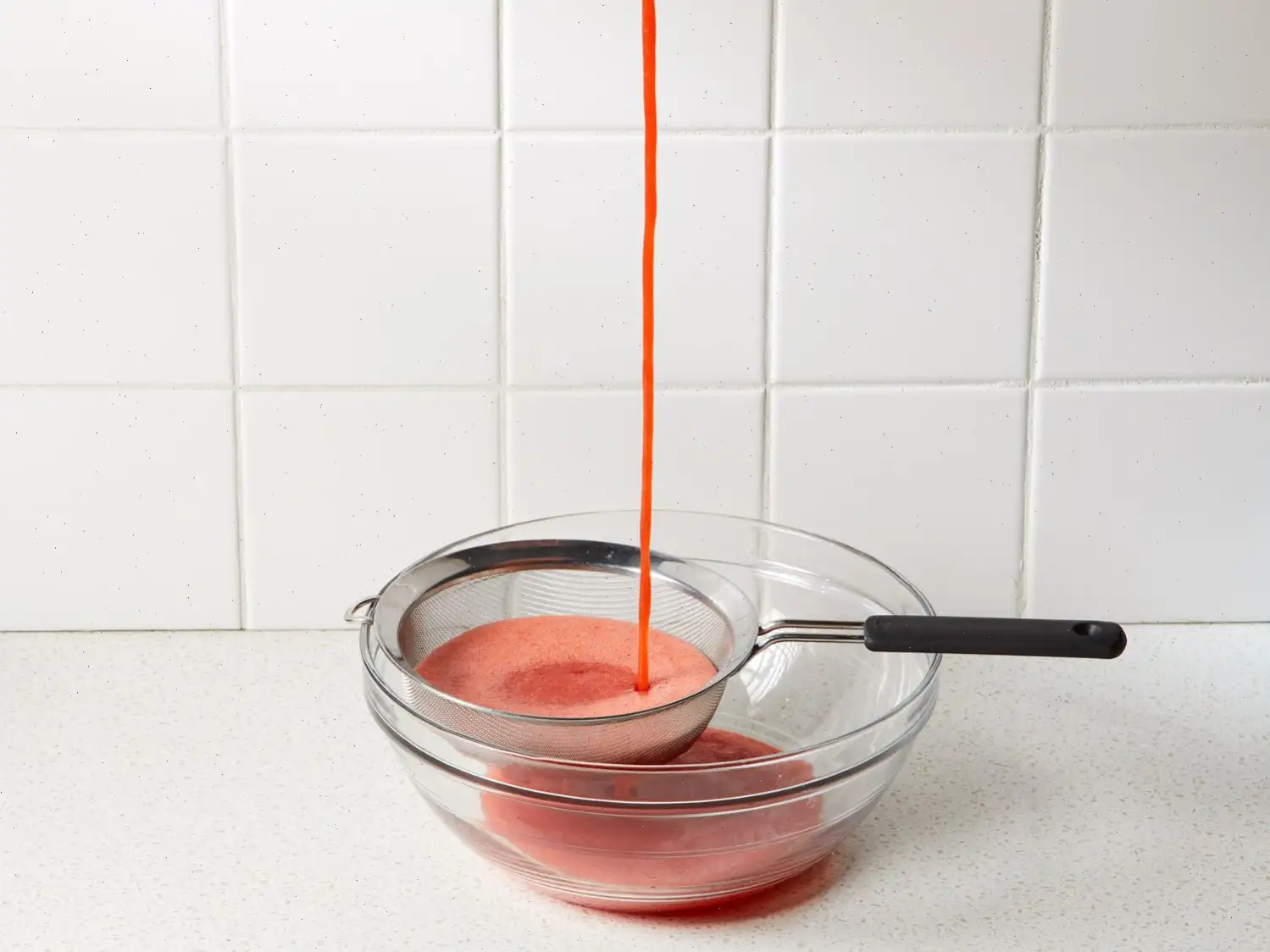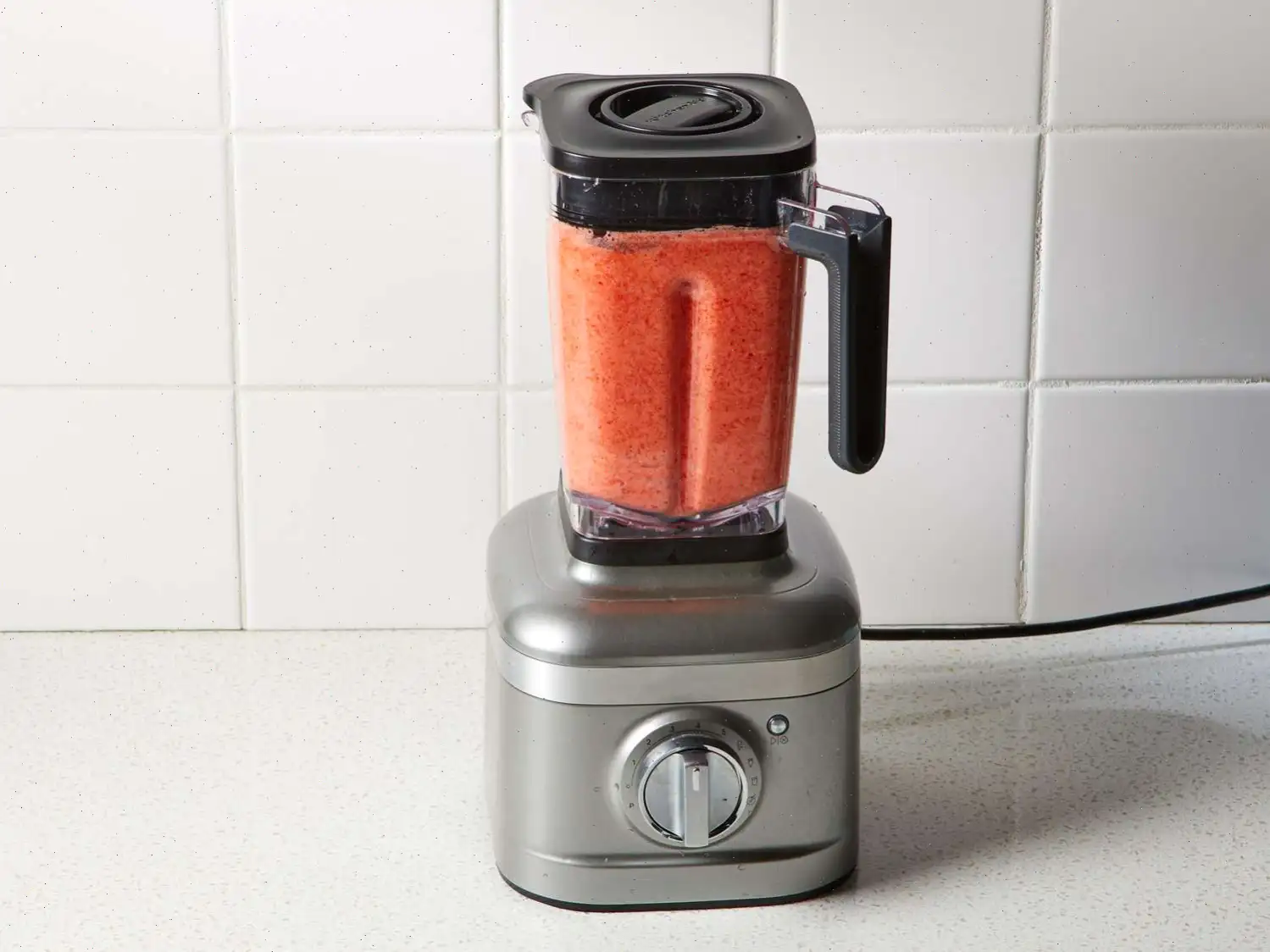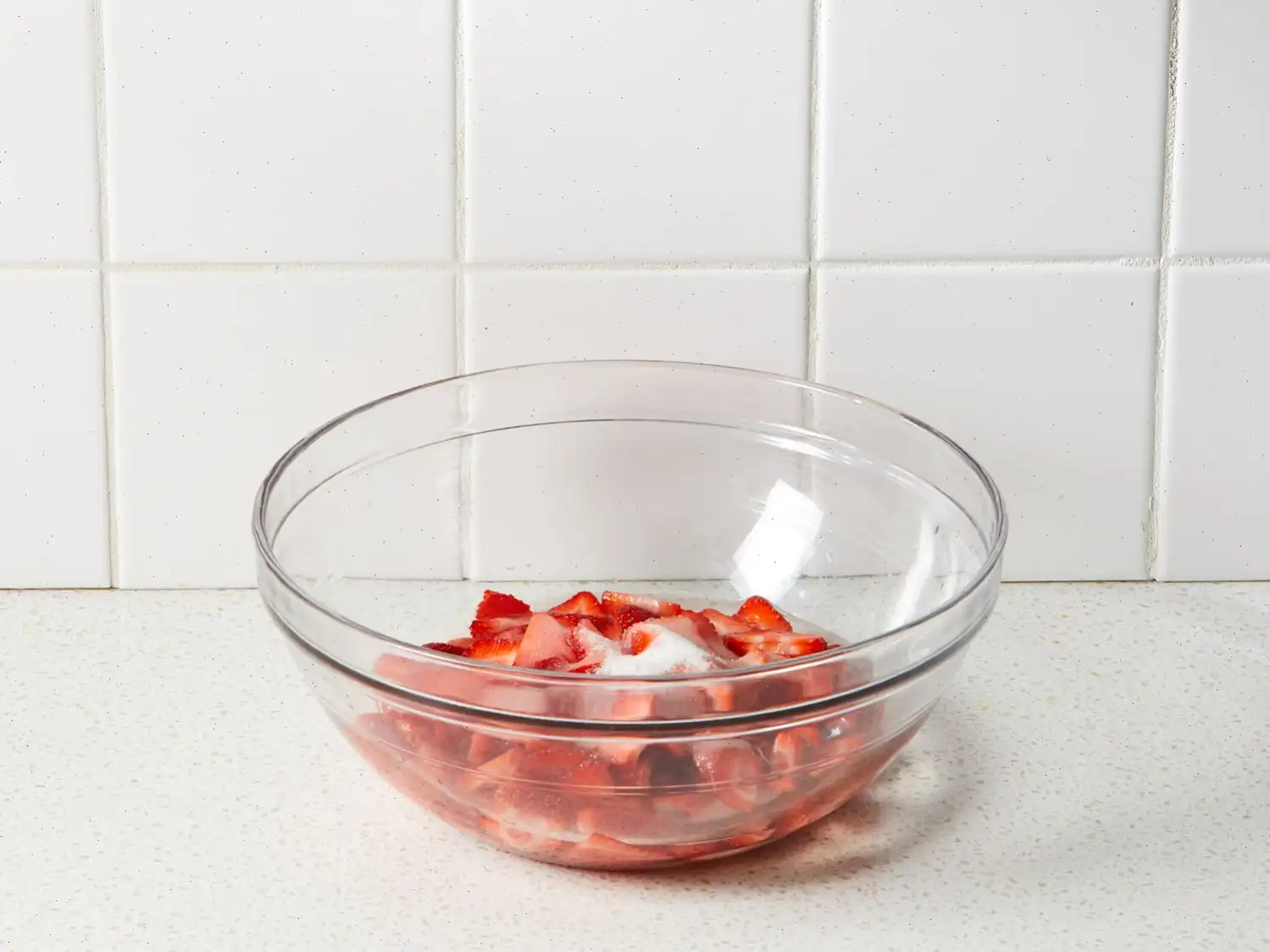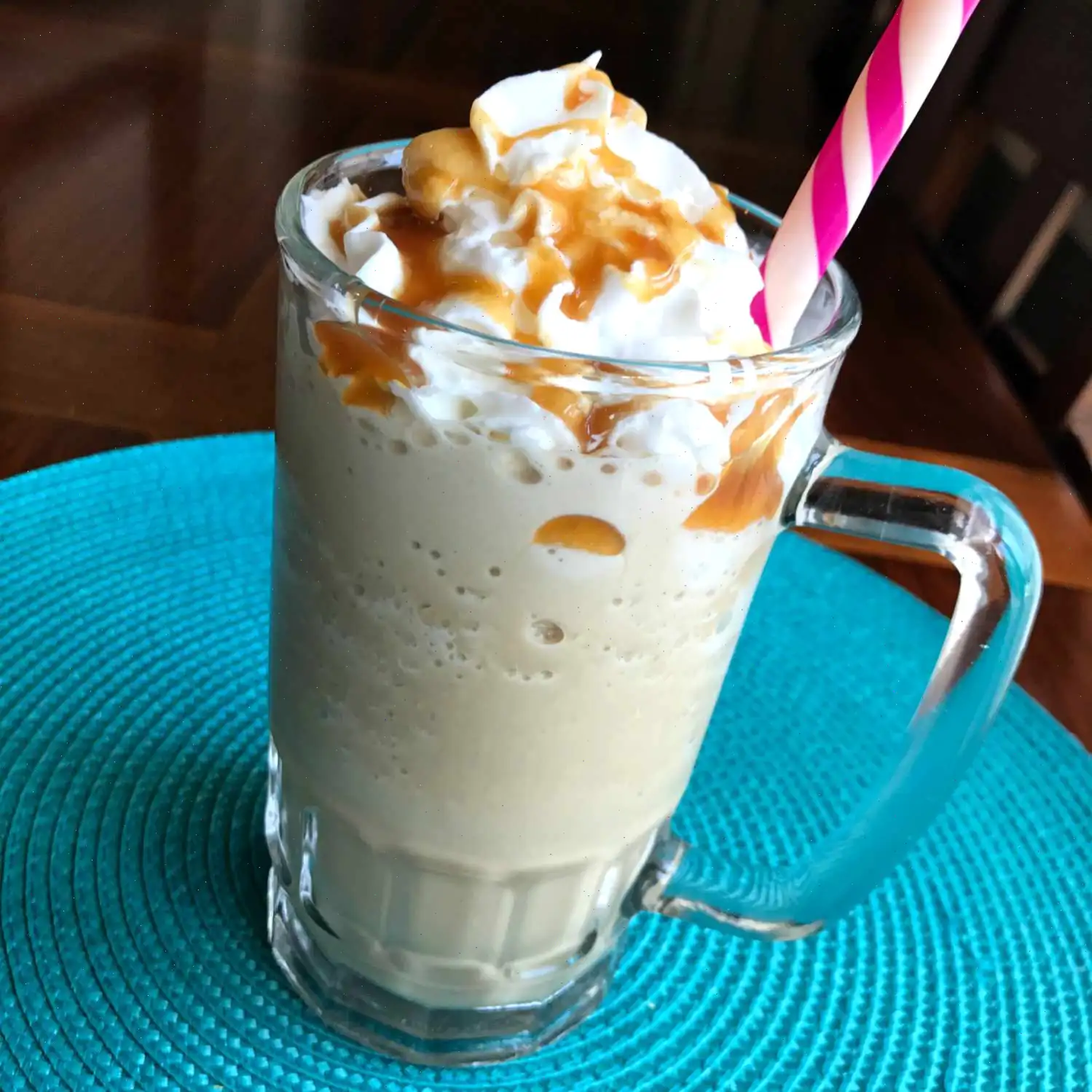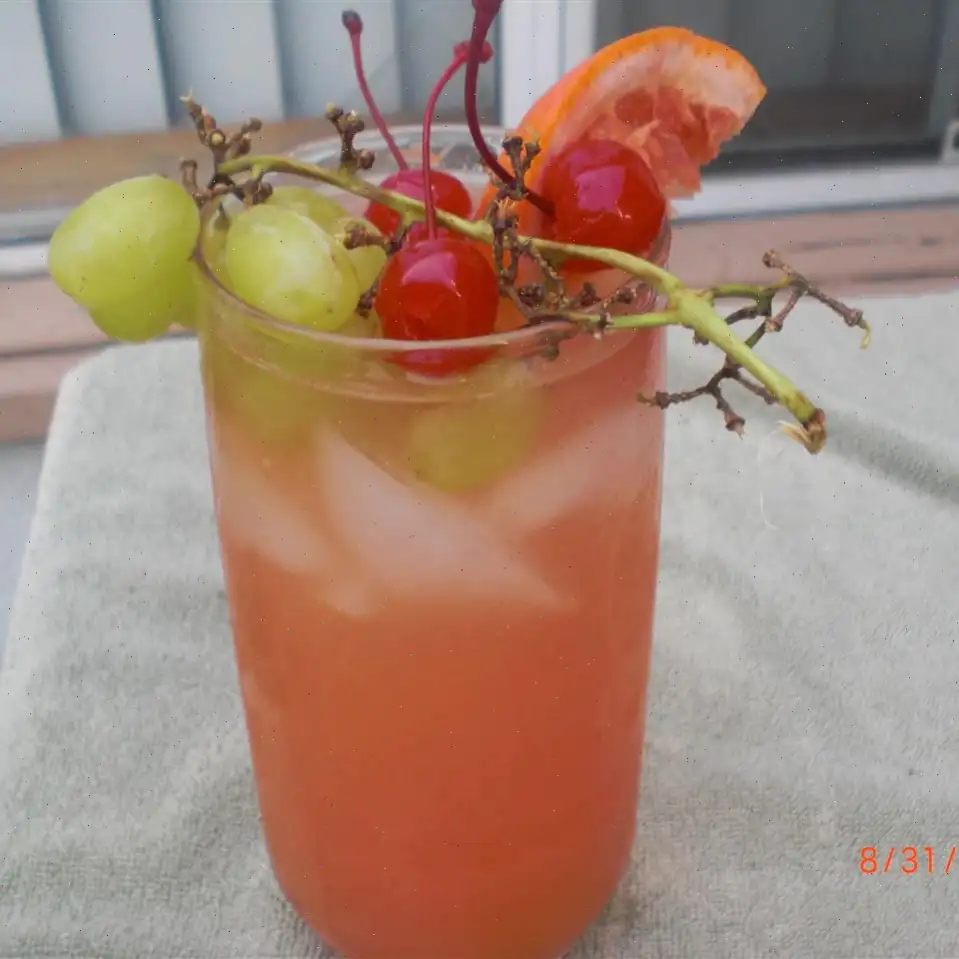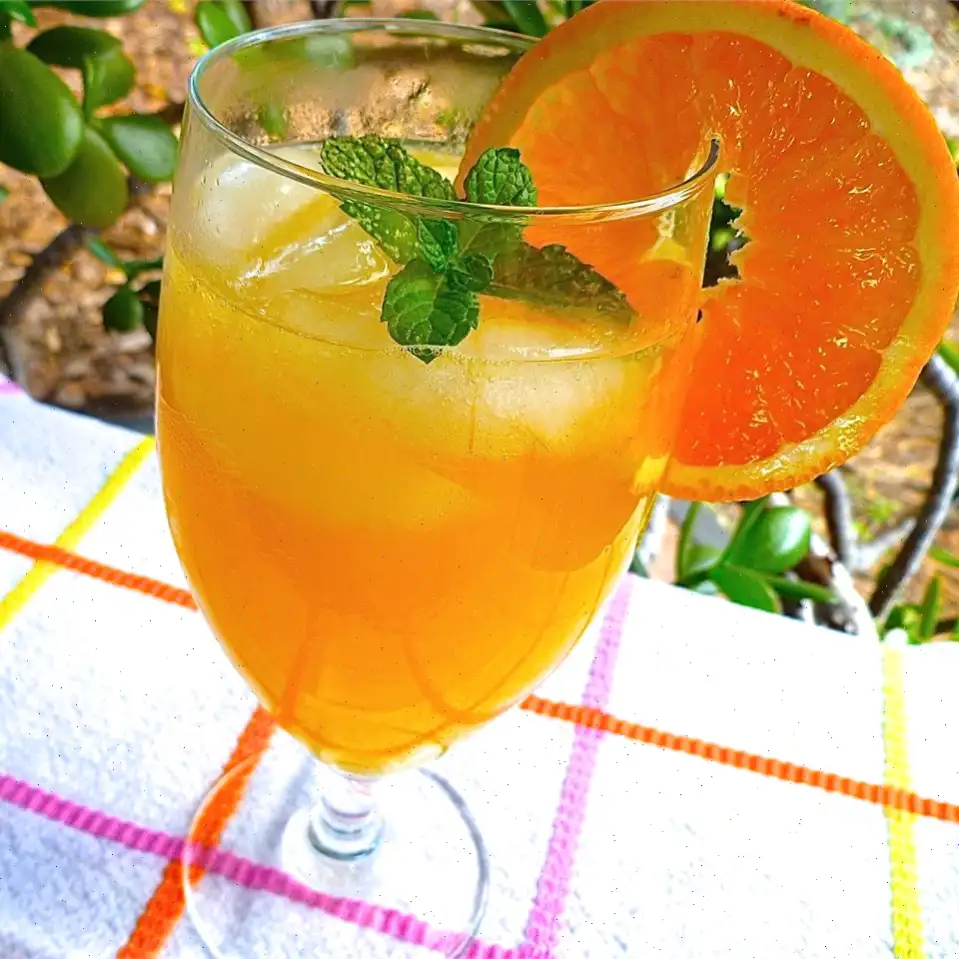
Mexican Strawberry Agua Fresca Recipe
Ingredients:
- 4 cups fresh ripe strawberries, sliced
- 1 cup white sugar
- 8 cups cold water, divided
- 5 cups ice for serving, or as needed
- 1 lime, cut into 8 wedges
- 8 fresh mint sprigs
Directions:
- Gather all ingredients and prepare the necessary tools, including a medium bowl, blender, and mesh strainer.
- In the medium bowl, combine sliced strawberries, sugar, and 1 cup of cold water. Mix well.
- Cover the bowl with plastic wrap and refrigerate for 4 hours to allow the flavors to meld and the sugar to dissolve.
- After 4 hours, pour the chilled strawberry mixture into a blender. Blend on high speed until smooth.
- Place a wire mesh strainer over a large bowl and pour the blended mixture through it. Discard any pulp and seeds that remain in the strainer.
- Stir in the remaining 7 cups of cold water to the strawberry juice until the flavors are well combined.
- Fill glasses with ice cubes, then pour the prepared aqua de fresa over the ice in each glass.
- Garnish each glass with lime wedges and fresh mint sprigs for a refreshing touch.
Recipe Tip: If you are not serving immediately, refrigerate the strawberry water for a few hours to keep it chilled.
Nutrition Facts (per serving):
| Nutrition Facts | Amount per Serving |
|---|---|
| Calories | 100 |
| Total Fat | 0g |
| Sodium | 7mg |
| Total Carbohydrate | 26g |
| Dietary Fiber | 1g |
| Total Sugars | 23g |
| Protein | 1g |
| Vitamin C | 40mg |
| Calcium | 23mg |
| Iron | 0mg |
| Potassium | 108mg |
* Percent Daily Values are based on a 2,000 calorie diet. Your daily values may be higher or lower depending on your calorie needs.
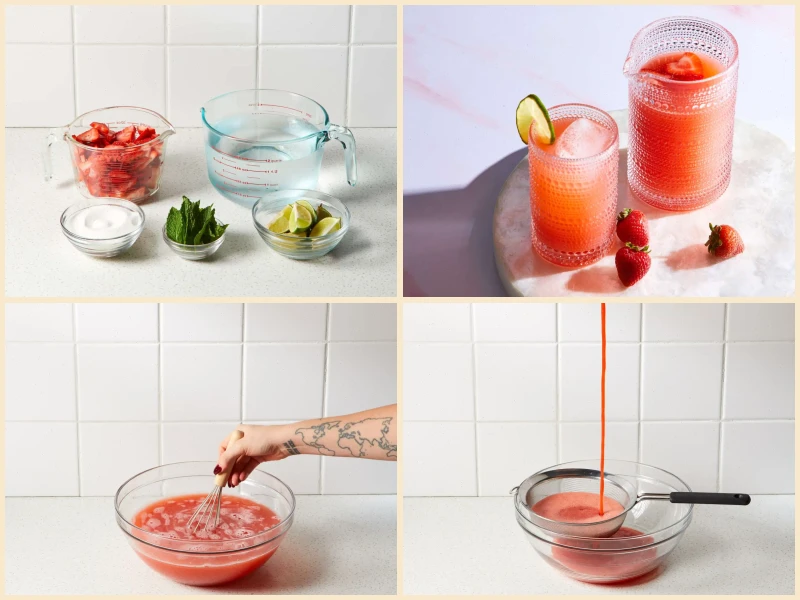
Origin and History
The refreshing drink known as agua fresca has its roots in Mexico, where it has been a beloved beverage for centuries. The term "agua fresca" translates to "fresh water," which aptly describes the drink's light, hydrating qualities. Originally, agua fresca was made from fruits native to Mexico, such as hibiscus, tamarind, and watermelon, blended with water and sweetened with sugar. However, over time, many regional variations have emerged, with strawberries being one of the most popular fruits for the preparation of this delicious, cool beverage.
Mexican strawberry agua fresca, or "agua de fresa," is particularly popular during the warmer months, offering a perfect balance of sweetness and hydration. It became a staple at street food vendors, homes, and celebrations, especially during the hot summer months. The drink is not only refreshing but also a way for people to enjoy the bounty of fresh, local strawberries.
Regional Variations
While agua fresca is widely enjoyed throughout Mexico, its preparation can vary by region depending on the fruits available locally. In coastal regions, fruits like coconut or tropical fruits like mango and pineapple are commonly used. In the north, where strawberries are abundant, agua de fresa is a favorite choice. The drink's flexibility allows for various fruit combinations, with many people experimenting with additions like lime, mint, or even a splash of tequila for an adult version of the drink.
Strawberries in particular are used not only for their flavor but also for their vibrant color, which adds to the visual appeal of the drink. In Mexico, you may also find agua fresca being served with additional flavorings such as cinnamon, vanilla, or even a pinch of salt to enhance the sweetness and bring out the fresh, tangy taste of the strawberries.
What Sets Mexican Strawberry Agua Fresca Apart
While there are many fruit-infused beverages around the world, Mexican strawberry agua fresca stands out due to its simplicity and its cultural significance. Unlike smoothies, which are often creamy and thick, agua fresca is a light, watery drink that is perfect for quenching thirst without feeling heavy. It is also much lower in calories than many fruit juices or sodas, making it a healthier alternative for those seeking a refreshing beverage without added sugars or preservatives.
The key difference between agua fresca and other similar beverages, such as fruit punches or lemonades, is its balance of water and fruit puree. In agua fresca, the fruit is blended with water and sugar, creating a drink that is diluted enough to be thirst-quenching yet flavorful. This makes it a perfect choice for a hot summer day or as a light complement to a meal. Additionally, unlike traditional fruit juices, the pulp in agua fresca is often strained, giving it a smooth texture without the added fiber, though some people prefer to leave it unstrained for a thicker consistency.
Where is It Typically Served?
Mexican strawberry agua fresca is most commonly served in Mexico, but it has spread across the globe, particularly in areas with large Latino communities. It is often sold by street vendors, known as "agua fresqueros," who prepare the drink fresh on the spot, serving it chilled with ice. It is also a popular offering at family gatherings, picnics, and festivals, especially during holidays such as Cinco de Mayo or Da de los Muertos, where it provides a refreshing contrast to heavier, spicier foods.
In restaurants, especially those specializing in Mexican cuisine, youll find agua fresca as a regular item on the menu. It is typically served in large glasses, garnished with a sprig of mint or a slice of lime to add a touch of brightness to the drink. Given its widespread popularity, it's also commonly found at many Latin American eateries in the U.S. and beyond, often alongside other traditional aguas frescas like watermelon or horchata.
Fun Facts
- The origin of agua fresca dates back to pre-Columbian Mexico, where indigenous people would prepare fruit drinks with the water from nearby rivers and lakes, flavored with local fruits and herbs.
- Strawberry agua fresca is often served at celebratory events, such as weddings and family reunions, symbolizing joy and refreshment.
- Strawberries were first cultivated in Mexico in the 16th century and were quickly adopted as an important fruit in many traditional dishes and drinks.
- In addition to strawberries, other fruits commonly used for agua fresca include mango, watermelon, cantaloupe, and pineapple, all of which offer a unique flavor profile.
- Though often associated with the summer months, agua fresca can be enjoyed year-round, especially in regions where strawberries are available throughout the year.
FAQ about Mexican Strawberry Agua Fresca Recipe
Comments
Heather Adams
04/30/2023 03:13:42 AM
I am not a fan of strawberries, so I decided to try making this recipe with blueberries once, and now I make it almost every day using frozen mango chunks. Instead of sugar, I use Splenda, and I prefer not to strain the pulp. This drink has significantly reduced my consumption of soda. Tonight, I am experimenting with watermelon! The mango water not only tastes great but also helps prevent muscle spasms in my hands due to the potassium content. Thank you for sharing this recipe! UPDATE 7-31-2019: The watermelon variation was absolutely delicious and perfect for summer, while the cantaloupe agua fresca completely blew my mind. I even froze the leftover ripe cantaloupe, pureed it, and used it later by just adding water and sugar – couldn't even tell the difference. As an Olivia myself, I am grateful beyond words.
Rachel Lee
08/14/2024 05:45:09 PM
I substituted fresh blueberries for strawberries in this recipe. AMAZING!! It was so light and refreshing - ideal for summer. I skipped straining it since I didn't have a wire strainer, but it turned out just fine with some pulp in it.
Michelle Carter
01/06/2023 06:38:40 AM
Tasty and invigorating!
Virginia Hill
07/08/2023 06:41:01 PM
I really enjoy this drink, however, it didn't sit well with my mom. She just doesn't have a taste for it.
Raymond Cruz
05/09/2024 05:36:51 PM
This drink was incredibly refreshing and served as the ideal way to cap off a scorching day under the sun. Will surely be making it again!
Victoria Nelson
03/31/2023 11:38:44 PM
My guests really liked the drink, especially on a hot evening.


